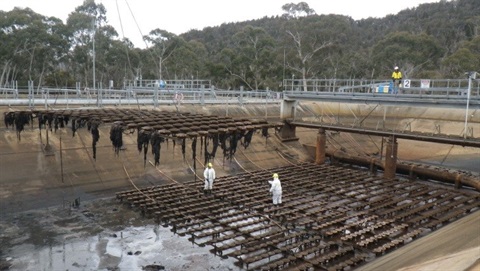
It may be uncomfortable, it may be unseemly – but Snowy Monaro, we've got to talk about your poop and how you've been dealing with it.
Most of us know that you can only flush the 'three Ps' down the toilet – pee, poo and paper - but for years now, wet wipes marketed as 'flushable' have been causing a quiet and underreported epidemic in sewer systems around the world.
The term fatberg has been coined to describe the revolting masses of congealed wet wipes, fats, oils, and grease that these decidedly non-flushable items create.
Fatbergs aren't just a big-city problem that's deeply uncomfortable to think about.
They can and do happen right here in the Snowy Monaro, and actual real-life people have to remove them from our sewers.
The removal process is hard, disgusting work – and it costs a lot of money.
It's not just wet wipes that cause problems and contribute to fatbergs developing, though as tampons, period pads, cotton buds, needles, condoms and food waste all add to the problem.
Fatbergs can be as strong as concrete and can need specialist equipment to remove.
They can cause sewers to back-up and overflow, polluting bodies of water and other sensitive parts of the environment.
Standards Australia this year introduced new regulations on what can and cannot be marketed as flushable.
By the end of November 2022, all applicable products will have to indicate correctly whether or not they can be safely flushed down a toilet.






